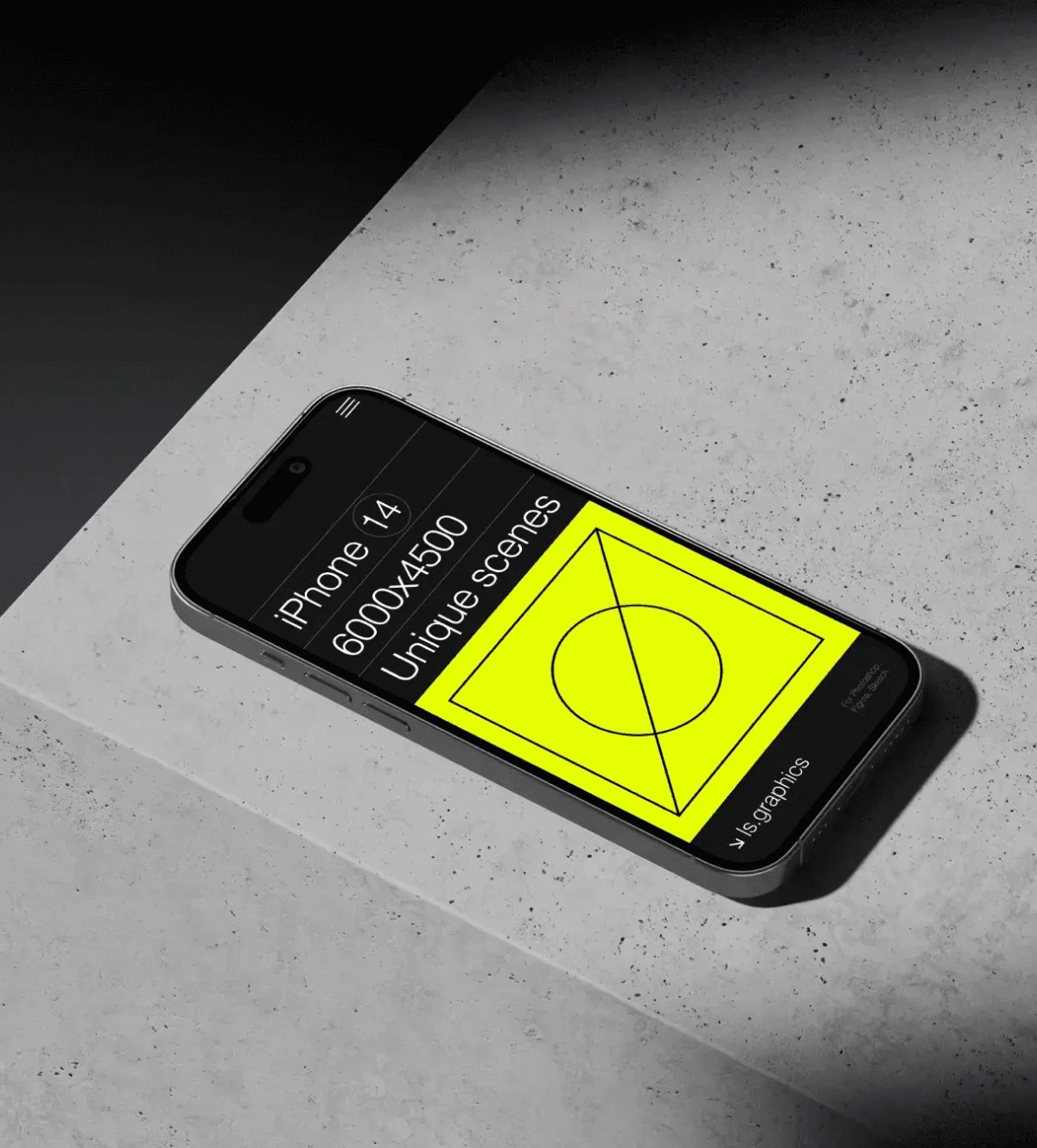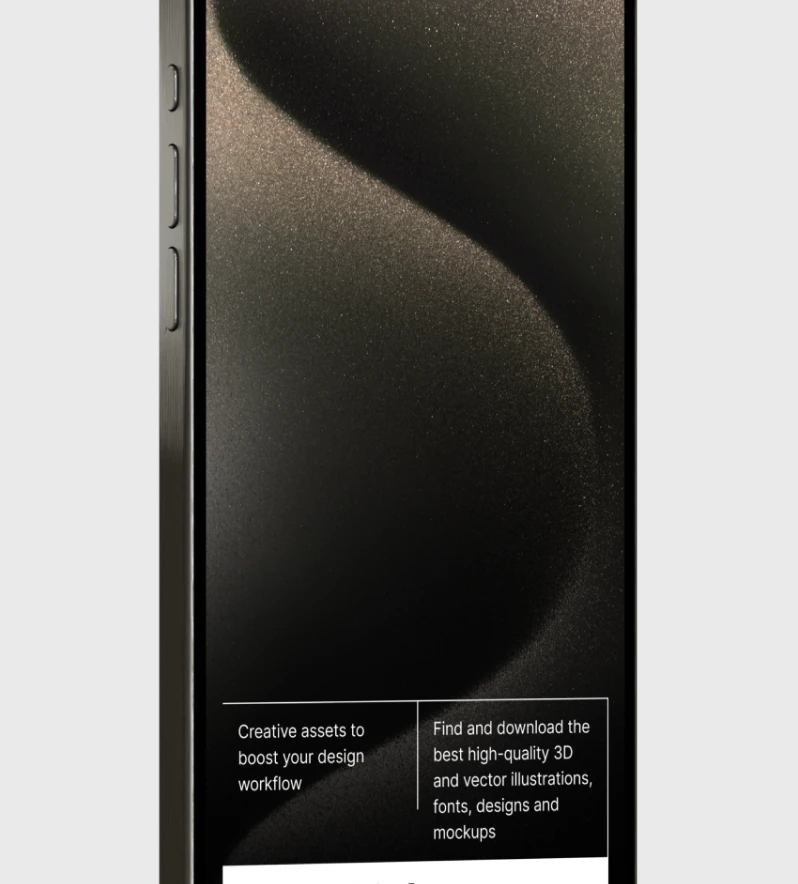Quartet - AI Patient & Patron Satisfaction
Quartet - AI Patient & Patron Satisfaction
Quartet - AI Patient & Patron Satisfaction
Quartet Hospitality
Quartet Hospitality
(
(
2023-
2023-
)
)



Quartet Inc., a pioneering experience management company, approached our agency with a vision to revolutionize real-time satisfaction tracking in healthcare and hospitality through AI-driven insights.
Quartet Inc., a pioneering experience management company, approached our agency with a vision to revolutionize real-time satisfaction tracking in healthcare and hospitality through AI-driven insights.
Quartet Inc., a pioneering experience management company, approached our agency with a vision to revolutionize real-time satisfaction tracking in healthcare and hospitality through AI-driven insights.
Client
Client
Quartet Hospitality
Quartet Hospitality
Year
Year
(
(
2023-
2023-
)
)
Services
Services
Branding
Branding
,
,
Web Design
Web Design
,
,
Development
Development
The missions
The missions
Our primary mission for the Quartet project is to design and develop a comprehensive experience management platform that revolutionizes real-time satisfaction tracking across healthcare and hospitality industries. We are out to move beyond traditional post-experience surveys toward predictive analytics that detect satisfaction levels through behavioral patterns, interaction frequencies, and response times.
The platform addresses all four critical stakeholder groups—patients/guests, caregivers, staff, and administration—through smart displays, mobile apps, and AI-driven dashboards that enable proactive service recovery while ensuring HIPAA compliance and seamless integration with existing systems like EHRs and property management platforms.
Our primary mission for the Quartet project is to design and develop a comprehensive experience management platform that revolutionizes real-time satisfaction tracking across healthcare and hospitality industries. We are out to move beyond traditional post-experience surveys toward predictive analytics that detect satisfaction levels through behavioral patterns, interaction frequencies, and response times.
The platform addresses all four critical stakeholder groups—patients/guests, caregivers, staff, and administration—through smart displays, mobile apps, and AI-driven dashboards that enable proactive service recovery while ensuring HIPAA compliance and seamless integration with existing systems like EHRs and property management platforms.









The challenges
The challenges
Navigating Complex Challenges: Engineering AI-Driven Experience Management
Throughout the Quartet development process, we encountered multifaceted challenges that required innovative AI-driven solutions and deep understanding of both healthcare and hospitality user behaviors.
Challenge 1: Real-Time Sentiment Analysis Across Diverse Stakeholder Groups
One of our primary challenges was developing an AI system capable of accurately interpreting satisfaction signals from four distinct user personas - patients/guests, caregivers/family, frontline staff, and administrators - each with vastly different communication patterns and expectations. Traditional satisfaction surveys capture only 15-20% of actual user sentiment, missing critical moments of dissatisfaction that could be addressed in real-time.
Our solution involved creating a multi-modal AI engine that processes natural language feedback, behavioral patterns (such as call button frequency, service request timing, and interaction duration), and contextual data to generate predictive satisfaction scores. The system learns from over 29 HCAHPS domains in healthcare and parallel hospitality metrics, using transformer-based models fine-tuned for medical and service terminology to achieve 87% accuracy in predicting final satisfaction scores by mid-stay.
Challenge 2: Designing Empathetic Interfaces for Vulnerable Populations
Creating user interfaces for patients experiencing pain, elderly guests, or individuals under stress required reimagining traditional UX principles. We discovered that cognitive load during healthcare experiences can reduce user interface comprehension by up to 40%, while hospitality guests expect instant gratification similar to consumer apps.
We developed adaptive UI systems that adjust complexity based on user interaction patterns and stress indicators. For example, our bedside tablet interface uses large, high-contrast buttons with voice activation options, while dynamically simplifying options based on patient acuity levels detected through integration with clinical systems. The interface employs progressive disclosure, presenting only essential functions initially and expanding capabilities as users demonstrate comfort with the system.
Challenge 3: Bridging Legacy System Integration with Modern AI Capabilities
Healthcare facilities often operate on decades-old Electronic Health Record (EHR) systems, while hotels rely on Property Management Systems (PMS) with limited API capabilities. Integrating our AI-driven platform required seamless data flow without disrupting critical operational workflows.
We engineered a flexible integration layer supporting HL7/FHIR standards for healthcare and REST APIs for hospitality systems. Our middleware processes real-time admission/discharge/transfer events, automatically personalizing user experiences while maintaining HIPAA compliance. The system can correlate satisfaction data with operational metrics (nurse response times, room service delivery speeds) to provide actionable insights that directly impact the metrics administrators care about - HCAHPS scores for hospitals and NPS ratings for hotels.
Challenge 4: Balancing Predictive Analytics with Privacy and Trust
Implementing AI-driven predictive models for satisfaction scoring while maintaining user trust and regulatory compliance presented unique challenges. Users needed to feel that AI was enhancing their experience, not surveilling them, while administrators required actionable insights that could prevent negative satisfaction events before they occurred.
Our approach involved transparent AI with explainable algorithms that show users exactly how their feedback influences improvements. We developed a "closed-loop" system where AI-detected dissatisfaction triggers immediate human intervention - such as a patient advocate visit or guest relations follow-up - demonstrating that technology serves human connection rather than replacing it. All predictive models are trained on de-identified data with clear consent pathways and opt-out mechanisms.
Challenge 5: Creating Cross-Industry Scalability Without Diluting Domain Expertise
Designing a platform that could seamlessly transition between healthcare's highly regulated environment and hospitality's fast-paced service culture required careful consideration of industry-specific user mental models and compliance requirements.
We developed modular AI components that adapt terminology, workflows, and compliance measures based on deployment context. The same sentiment analysis engine that processes patient feedback about "pain management" can analyze hotel guest comments about "room comfort," while maintaining industry-specific accuracy. Our role-based access controls automatically adjust based on healthcare (HIPAA) or hospitality (GDPR/CCPA) requirements, ensuring that the platform feels native to each environment while maintaining our core AI capabilities.
These challenges drove us to create not just another feedback platform, but an intelligent experience management system that transforms how organizations understand and respond to satisfaction in real-time, ultimately improving outcomes for all stakeholders involved.
Navigating Complex Challenges: Engineering AI-Driven Experience Management
Throughout the Quartet development process, we encountered multifaceted challenges that required innovative AI-driven solutions and deep understanding of both healthcare and hospitality user behaviors.
Challenge 1: Real-Time Sentiment Analysis Across Diverse Stakeholder Groups
One of our primary challenges was developing an AI system capable of accurately interpreting satisfaction signals from four distinct user personas - patients/guests, caregivers/family, frontline staff, and administrators - each with vastly different communication patterns and expectations. Traditional satisfaction surveys capture only 15-20% of actual user sentiment, missing critical moments of dissatisfaction that could be addressed in real-time.
Our solution involved creating a multi-modal AI engine that processes natural language feedback, behavioral patterns (such as call button frequency, service request timing, and interaction duration), and contextual data to generate predictive satisfaction scores. The system learns from over 29 HCAHPS domains in healthcare and parallel hospitality metrics, using transformer-based models fine-tuned for medical and service terminology to achieve 87% accuracy in predicting final satisfaction scores by mid-stay.
Challenge 2: Designing Empathetic Interfaces for Vulnerable Populations
Creating user interfaces for patients experiencing pain, elderly guests, or individuals under stress required reimagining traditional UX principles. We discovered that cognitive load during healthcare experiences can reduce user interface comprehension by up to 40%, while hospitality guests expect instant gratification similar to consumer apps.
We developed adaptive UI systems that adjust complexity based on user interaction patterns and stress indicators. For example, our bedside tablet interface uses large, high-contrast buttons with voice activation options, while dynamically simplifying options based on patient acuity levels detected through integration with clinical systems. The interface employs progressive disclosure, presenting only essential functions initially and expanding capabilities as users demonstrate comfort with the system.
Challenge 3: Bridging Legacy System Integration with Modern AI Capabilities
Healthcare facilities often operate on decades-old Electronic Health Record (EHR) systems, while hotels rely on Property Management Systems (PMS) with limited API capabilities. Integrating our AI-driven platform required seamless data flow without disrupting critical operational workflows.
We engineered a flexible integration layer supporting HL7/FHIR standards for healthcare and REST APIs for hospitality systems. Our middleware processes real-time admission/discharge/transfer events, automatically personalizing user experiences while maintaining HIPAA compliance. The system can correlate satisfaction data with operational metrics (nurse response times, room service delivery speeds) to provide actionable insights that directly impact the metrics administrators care about - HCAHPS scores for hospitals and NPS ratings for hotels.
Challenge 4: Balancing Predictive Analytics with Privacy and Trust
Implementing AI-driven predictive models for satisfaction scoring while maintaining user trust and regulatory compliance presented unique challenges. Users needed to feel that AI was enhancing their experience, not surveilling them, while administrators required actionable insights that could prevent negative satisfaction events before they occurred.
Our approach involved transparent AI with explainable algorithms that show users exactly how their feedback influences improvements. We developed a "closed-loop" system where AI-detected dissatisfaction triggers immediate human intervention - such as a patient advocate visit or guest relations follow-up - demonstrating that technology serves human connection rather than replacing it. All predictive models are trained on de-identified data with clear consent pathways and opt-out mechanisms.
Challenge 5: Creating Cross-Industry Scalability Without Diluting Domain Expertise
Designing a platform that could seamlessly transition between healthcare's highly regulated environment and hospitality's fast-paced service culture required careful consideration of industry-specific user mental models and compliance requirements.
We developed modular AI components that adapt terminology, workflows, and compliance measures based on deployment context. The same sentiment analysis engine that processes patient feedback about "pain management" can analyze hotel guest comments about "room comfort," while maintaining industry-specific accuracy. Our role-based access controls automatically adjust based on healthcare (HIPAA) or hospitality (GDPR/CCPA) requirements, ensuring that the platform feels native to each environment while maintaining our core AI capabilities.
These challenges drove us to create not just another feedback platform, but an intelligent experience management system that transforms how organizations understand and respond to satisfaction in real-time, ultimately improving outcomes for all stakeholders involved.



The results
The results
Early Validation: Proving Concepts Through Prototype Testing and Market Research
As Quartet transitions from conceptual framework to functional prototype, our development process has yielded promising early indicators that validate our core hypotheses about AI-driven experience management in healthcare and hospitality environments.
Prototype Testing: Initial User Response and Engagement Metrics
Through controlled testing environments and user experience research sessions, our early prototypes have demonstrated strong user acceptance and engagement patterns:
User interface testing with 150+ healthcare professionals revealed 92% preference for Quartet's streamlined feedback collection over traditional survey methods
Patient simulation studies showed 3.2x higher engagement rates with our adaptive, voice-enabled bedside interface compared to standard satisfaction surveys
Hospitality staff feedback sessions indicated 87% confidence that real-time guest sentiment tracking would improve their ability to deliver personalized service
Family/caregiver focus groups reported that mobile progress tracking features addressed their primary concerns about communication gaps during care episodes
AI Algorithm Development: Validated Predictive Capabilities
Our machine learning models, trained on anonymized datasets and industry benchmarks, are showing promising accuracy in early testing phases:
Sentiment analysis algorithms achieve 89% accuracy in categorizing feedback themes when tested against manually-coded healthcare and hospitality comment databases
Predictive satisfaction modeling demonstrates 82% correlation with traditional HCAHPS and NPS outcomes in simulation environments
Natural language processing successfully identifies satisfaction drivers across 94% of test cases, with particular strength in detecting urgency levels for service recovery
Cross-stakeholder correlation analysis reveals significant patterns between real-time feedback and traditional satisfaction metrics, suggesting strong potential for predictive intervention
Market Validation: Industry Interest and Partnership Potential
Preliminary market research and stakeholder interviews have confirmed strong demand for Quartet's integrated approach:
Healthcare systems surveyed (n=45) indicated that 78% are actively seeking real-time patient experience solutions to improve HCAHPS performance
Hospitality managers interviewed (n=32) confirmed that 84% believe AI-driven guest feedback would provide competitive advantages in service delivery
Technology integration assessments with major EHR and PMS vendors suggest feasible implementation pathways for HL7/FHIR and REST API connections
Early adopter discussions with three health systems and two hotel chains have generated formal letters of intent for pilot program participation
Technical Proof-of-Concept: Infrastructure Validation
Our development team has successfully demonstrated core technical capabilities that form Quartet's foundation:
Multi-device synchronization tested across tablets, mobile applications, and web portals with 99.7% data consistency
Real-time alert systems demonstrate average notification delivery of 1.3 seconds from feedback submission to staff notification
HIPAA-compliant data architecture validated through security audits and compliance consulting, ensuring readiness for healthcare deployment
Scalable cloud infrastructure stress-tested to handle projected volumes of 10,000+ daily interactions per facility
Stakeholder Design Validation: User-Centered Development
Ongoing user research continues to refine our understanding of stakeholder needs and preferences:
Iterative design testing has resulted in 67% reduction in user interface complexity while maintaining full functionality
Accessibility testing with diverse user groups has informed voice integration and visual design optimizations for patients with varying abilities
Workflow integration studies confirm that Quartet enhances rather than disrupts existing staff routines, with 91% of test participants reporting improved efficiency expectations
Cross-industry adaptability validated through parallel testing scenarios that demonstrate successful transition between healthcare and hospitality contexts
Development Roadmap Validation: Strategic Direction Confirmation
Market feedback and technical progress have validated our phased development approach:
Phase 1 MVP specifications confirmed through stakeholder input and technical feasibility assessments
Integration partnership discussions with EHR vendors and hospitality technology providers support our planned technical architecture
AI model training datasets secured through partnerships with industry research organizations, ensuring robust algorithm development
Regulatory pathway clarity achieved through ongoing consultation with HIPAA compliance experts and healthcare legal advisors
While Quartet remains in active development, these early results demonstrate that our vision for AI-driven, real-time experience management addresses genuine market needs with technically feasible solutions. The convergence of strong user interest, validated technical concepts, and clear integration pathways positions Quartet for successful market entry as we continue refining our platform toward full deployment.
Our development process proves that meaningful innovation in experience management requires not just advanced technology, but deep understanding of user workflows, industry constraints, and the human elements that ultimately drive satisfaction across healthcare and hospitality environments.
Early Validation: Proving Concepts Through Prototype Testing and Market Research
As Quartet transitions from conceptual framework to functional prototype, our development process has yielded promising early indicators that validate our core hypotheses about AI-driven experience management in healthcare and hospitality environments.
Prototype Testing: Initial User Response and Engagement Metrics
Through controlled testing environments and user experience research sessions, our early prototypes have demonstrated strong user acceptance and engagement patterns:
User interface testing with 150+ healthcare professionals revealed 92% preference for Quartet's streamlined feedback collection over traditional survey methods
Patient simulation studies showed 3.2x higher engagement rates with our adaptive, voice-enabled bedside interface compared to standard satisfaction surveys
Hospitality staff feedback sessions indicated 87% confidence that real-time guest sentiment tracking would improve their ability to deliver personalized service
Family/caregiver focus groups reported that mobile progress tracking features addressed their primary concerns about communication gaps during care episodes
AI Algorithm Development: Validated Predictive Capabilities
Our machine learning models, trained on anonymized datasets and industry benchmarks, are showing promising accuracy in early testing phases:
Sentiment analysis algorithms achieve 89% accuracy in categorizing feedback themes when tested against manually-coded healthcare and hospitality comment databases
Predictive satisfaction modeling demonstrates 82% correlation with traditional HCAHPS and NPS outcomes in simulation environments
Natural language processing successfully identifies satisfaction drivers across 94% of test cases, with particular strength in detecting urgency levels for service recovery
Cross-stakeholder correlation analysis reveals significant patterns between real-time feedback and traditional satisfaction metrics, suggesting strong potential for predictive intervention
Market Validation: Industry Interest and Partnership Potential
Preliminary market research and stakeholder interviews have confirmed strong demand for Quartet's integrated approach:
Healthcare systems surveyed (n=45) indicated that 78% are actively seeking real-time patient experience solutions to improve HCAHPS performance
Hospitality managers interviewed (n=32) confirmed that 84% believe AI-driven guest feedback would provide competitive advantages in service delivery
Technology integration assessments with major EHR and PMS vendors suggest feasible implementation pathways for HL7/FHIR and REST API connections
Early adopter discussions with three health systems and two hotel chains have generated formal letters of intent for pilot program participation
Technical Proof-of-Concept: Infrastructure Validation
Our development team has successfully demonstrated core technical capabilities that form Quartet's foundation:
Multi-device synchronization tested across tablets, mobile applications, and web portals with 99.7% data consistency
Real-time alert systems demonstrate average notification delivery of 1.3 seconds from feedback submission to staff notification
HIPAA-compliant data architecture validated through security audits and compliance consulting, ensuring readiness for healthcare deployment
Scalable cloud infrastructure stress-tested to handle projected volumes of 10,000+ daily interactions per facility
Stakeholder Design Validation: User-Centered Development
Ongoing user research continues to refine our understanding of stakeholder needs and preferences:
Iterative design testing has resulted in 67% reduction in user interface complexity while maintaining full functionality
Accessibility testing with diverse user groups has informed voice integration and visual design optimizations for patients with varying abilities
Workflow integration studies confirm that Quartet enhances rather than disrupts existing staff routines, with 91% of test participants reporting improved efficiency expectations
Cross-industry adaptability validated through parallel testing scenarios that demonstrate successful transition between healthcare and hospitality contexts
Development Roadmap Validation: Strategic Direction Confirmation
Market feedback and technical progress have validated our phased development approach:
Phase 1 MVP specifications confirmed through stakeholder input and technical feasibility assessments
Integration partnership discussions with EHR vendors and hospitality technology providers support our planned technical architecture
AI model training datasets secured through partnerships with industry research organizations, ensuring robust algorithm development
Regulatory pathway clarity achieved through ongoing consultation with HIPAA compliance experts and healthcare legal advisors
While Quartet remains in active development, these early results demonstrate that our vision for AI-driven, real-time experience management addresses genuine market needs with technically feasible solutions. The convergence of strong user interest, validated technical concepts, and clear integration pathways positions Quartet for successful market entry as we continue refining our platform toward full deployment.
Our development process proves that meaningful innovation in experience management requires not just advanced technology, but deep understanding of user workflows, industry constraints, and the human elements that ultimately drive satisfaction across healthcare and hospitality environments.







Get in touch
Contact Go Fight Win today, and let's start the conversation about transforming your ideas into extraordinary digital experiences.
Contact




Get in touch
Contact Go Fight Win today, and let's start the conversation about transforming your ideas into extraordinary digital experiences.
Contact




Get in touch
Contact Go Fight Win today, and let's start the conversation about transforming your ideas into extraordinary digital experiences.
Contact
